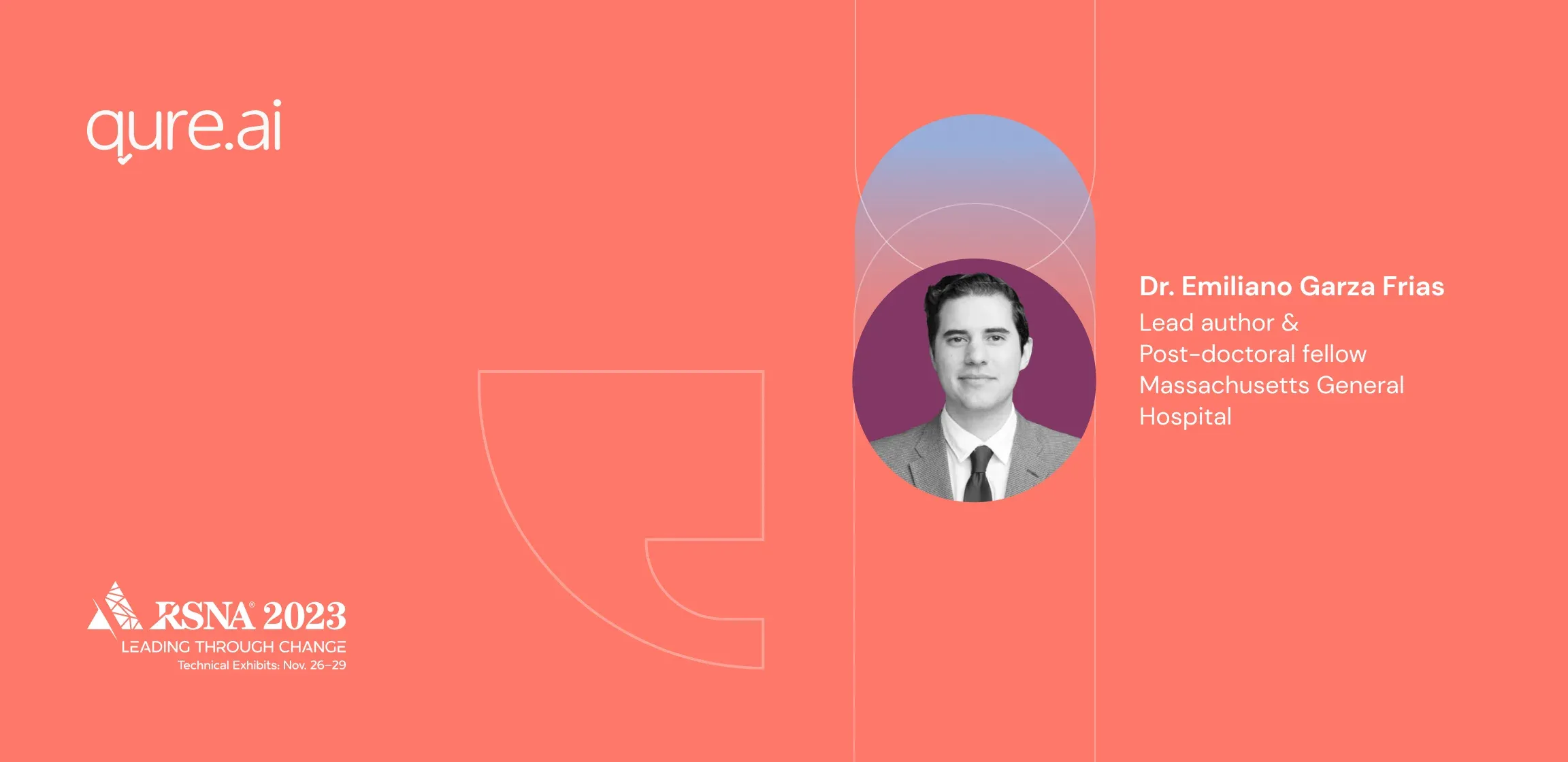Witness a leap forward in medical technology, where AI's prowess in detecting subtle signs of heart failure in patients without a known cardiovascular history is highlighted. Dr. Emiliano Garza Frias' study, recipient of the RSNA Trainee Research Prize, represents a significant stride in leveraging AI for predictive healthcare, particularly in the critical field of cardiology.

Back
Introduction: The RSNA 2023 conference highlighted an innovative study by Dr. Emiliano Garza Frias, a post-doctoral research fellow at Massachusetts General Hospital, focusing on the use of autonomous AI for the early diagnosis of heart failure using chest X-rays (CXR). This research, recognized with the RSNA Trainee Research Prize, is particularly notable for its application in detecting heart failure in patients without a previous cardiovascular diagnosis.
Main Synopsis of Discussion: Dr. Garza’s work centers on the potential of AI in opportunistic radiological screening to identify early indicators of heart failure. The study involved a retrospective analysis of CXRs from two patient groups: one with individuals who did not develop heart failure for up to two years following their X-ray, and another with patients who were diagnosed with heart failure within a year post-X-ray. The AI system assessed factors such as cardiomegaly and pleural effusion to create a risk index. This approach allowed for the categorization of patients into high and low heart failure risk groups. The results displayed the AI model's strong predictive performance, with significant findings related to the correlation between ejection fraction and the time from X-ray to heart failure diagnosis.
Key Points:
- Design and Methodology of the AI Study: The study's retrospective approach split patients into groups based on their post-CXR heart failure diagnosis, utilizing AI to analyze and predict heart failure risk.
- AI Model's Predictive Results: The AI model demonstrated high predictive accuracy, particularly noteworthy in the time closer to the heart failure diagnosis. The model showed a high area under the curve (AUC) values, indicating strong predictive capabilities.
- Clinical Impact and Future Potential: Emphasizing the timing in heart failure diagnosis and treatment, the study highlights the AI tool's potential in clinical settings. The use of CXRs, a widespread and economical modality, makes this AI application both practical and accessible.
Conclusion: Dr. Garzas’s study concludes that AI can significantly aid in the early detection of heart failure, potentially improving patient care through timely intervention. The success of this study not only demonstrates the efficacy of AI in cardiology but also opens avenues for future research and practical applications in the field.
Clinical Relevance/Application: The application of AI in routine CXR interpretation to identify heart failure risk represents a substantial advancement in cardiac healthcare. This method promises a more efficient, cost-effective approach to early diagnosis, thereby enhancing overall patient management in heart-related diseases.